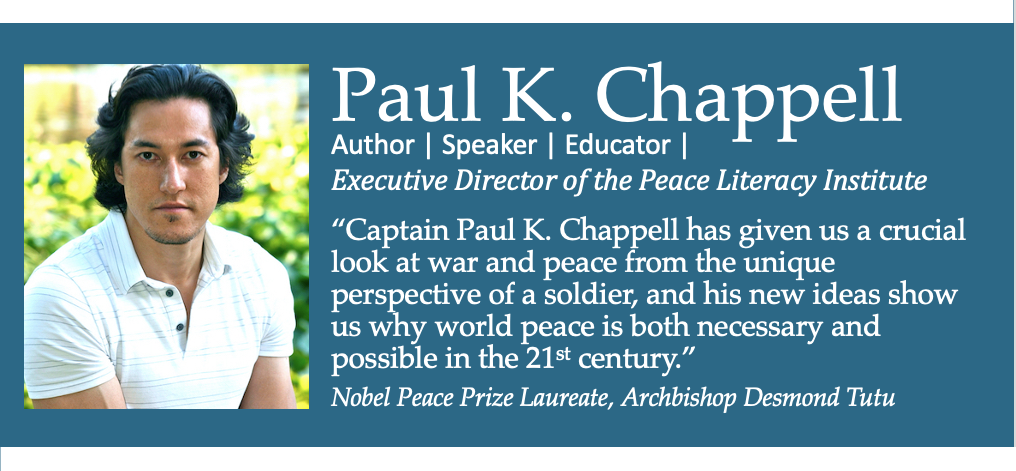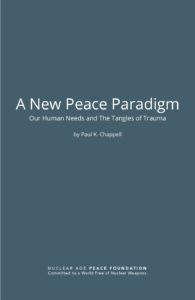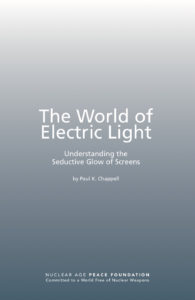Paul K. Chappell is the founder of Peace Literacy and the author of six books, most recently Soldiers of Peace. Lecturing across the country and internationally, he also teaches college courses and workshops on Peace Literacy and Peace Leadership and leads a Peace Literacy curricular development team for k-12 and higher education. In 2021, Chappell became the Executive Director of the Peace Literacy Institute (peaceliteracy.org). As a West Point graduate, Iraq War veteran, and former army captain, Paul K. Chappell shows why people need to be as well trained in waging peace as soldiers are in waging war.
A New Peace Paradigm
In the video below, Chappell lectures at York College. He shows that peace is possible, but first we have to understand our basic human needs.
Why World Peace Is Possible
In the video below, Chappell speaks to 1200 people at the outdoor Hall of Philosophy of the Chautauqua Institution about realistic hope, the need for Peace Literacy, the myth that human beings are naturally violent, and the possibility of ending war between nations.
Peace Literacy, Trauma, and Technology
A New Peace Paradigm:
Our Human Needs and the Tangles of Trauma
Our understanding of peace is only as good as our understanding of the human condition and trauma. Chappell’s essay A New Peace Paradigm: Our Human Needs and the Tangles of Trauma upends Maslow’s hierarchy of needs and offers a new and hopeful framework for understanding the human condition, trauma, the nature of human happiness, and the root causes of our national and global problems. The essay is available for download here.
The World of Electric Light:
Understanding the Seductive Glow of Screens
In this essay Chappell builds on the ideas discussed in A New Peace Paradigm and offer new frameworks for understanding technology, especially the Internet, social media, virtual reality, and augmented reality. The World of Electric Light provides foundational frameworks for increasing our competency not only in technology but also in our understanding of the human condition. To be competent in peace in the twenty-first century, we must be competent in the ways technology can intersect with the human condition. This essay is available for download here.
Visit the Peace Literacy Institute website for more information on our curriculum and workshops.


